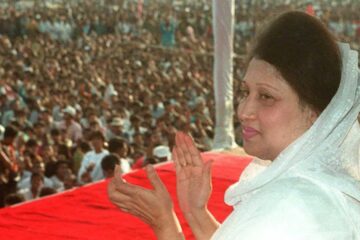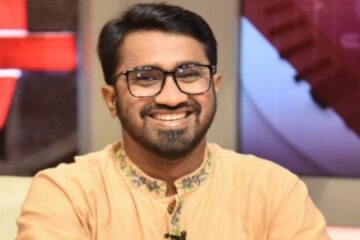The battery-run autorickshaw, popularly dubbed the poor man’s Tesla, has become one of the most ubiquitous vehicles on Bangladesh’s roads. What once took ages by pedal rickshaw can now be done in minutes.
Wonderful, isn’t it? Or perhaps not.
There were attempts to ban these vehicles from Dhaka’s main roads. Yet no one seriously discussed restricting their movement inside residential areas, nor examined whether such control would even be possible. And let’s be honest, the accidents haven’t stopped.
Today, battery-run rickshaws are widely recognized as major contributors to both traffic congestion and road accidents. Still, whenever the authorities try to intervene, pressure mounts from local leaders, syndicates, and even parts of the public who rely on them.
Dhaka overrun
Official data paints a grim picture. Around one million (10 lakh) battery-run rickshaws now ply the streets of Dhaka, despite having no legal foundation, registration, or government approval as a mode of transport. To recharge them, around 5,000 charging stations have mushroomed across the city, many powered by illegal connections. Thousands of unregulated factories spread across Kamrangirchar, Keraniganj, Kamalapur, Gazipur, and Tongi assemble 400 to 500 new rickshaws every single day, adding to the chaos.
Though technically banned, the Ministry of Power has allowed electricity for 3,300 charging stations, consuming about 26 megawatts per day, while countless others steal power, draining public revenue. This parallel economy, illegal yet indispensable, has quietly embedded itself into the veins of the capital.
Urban planners warn that battery rickshaws, running at 30 to 40 km/h, ignoring traffic signals, and lacking proper brakes or driver training, now account for around 15% of road accidents, worsening gridlock across major roads.
Experts argue that piecemeal bans or symbolic crackdowns won’t solve this crisis. Bangladesh needs a comprehensive national framework, one that enforces the ban, shuts down illegal factories and charging hubs, regulates battery imports and recycling, introduces BUET-approved safe models, and mandates driver training, registration, and fitness certification.
The government must also invest in lithium-based alternatives, regulate the informal battery trade, and launch public education campaigns about lead exposure. Without decisive action now, this poor man’s Tesla could become Bangladesh’s most dangerous convenience.
Statistics tell only part of the story. The rest plays out every day in our neighbourhoods.
One evening, the father of a close friend went out for a walk. A battery-run rickshaw struck him from behind, shattering his arm. The driver smiled apologetically, while passengers pleaded for forgiveness, saying, “He’s a poor man.” My friend’s father later underwent surgery, spending over a hundred thousand taka on treatment.
Another afternoon, another elderly woman from the neighbourhood, walking carefully along the roadside, was hit from behind too by another of these rickshaws. She suffered serious injuries.
These have become part of urban life. The roads that once felt safe for an evening stroll now feel like danger zones. From scratching parked cars to knocking down pedestrians, these rickshaws operate without consequence and without accountability.
What’s the way out?
Truthfully, no one seems to know. These rickshaws are spreading like wildfire. Workshops are popping up in every lane, often powered by stolen electricity. Illegal, uninspected, and untouchable, they form an economy of disorder.
There is no license, no training, no oversight. People who once worked in tailoring shops, grocery stalls, or construction have abandoned those trades for rickshaw driving. It’s fast money, and for many, the only option left.
Can such a profession be banned locally when entire communities depend on it? Probably not. And so, ordinary citizens must bear the consequences: Congestion, injury, potentially even death.
In Nikunja, residents once united to ban battery-run rickshaws. Today, their roads are quiet, slow, and safe. But such unity is rare elsewhere, where locals themselves are stakeholders in this informal transport network. Still, must the general public continue paying the price with their lives?
During a recent visit to Dhaka University, I found the campus nearly overrun by battery-run rickshaws. It took me seven long minutes to cross the road in front of Shaheed Minar, and I eventually had to risk my life between blaring horns to make it across.
Ducsu leaders have launched various initiatives, some commendable, others controversial. But if their mission is genuinely to make the campus safer, both current and former students would welcome it wholeheartedly.
However, one student leader recently argued that the state must ensure the livelihoods of the poor and homeless who depend on the campus. Perhaps he is right in principle, but if the price of that responsibility is my life, how just is that? Do I not already contribute to the state through my taxes, labour, and civic duty?
As elected representatives, however debated their mandate may be, student leaders should reflect the students’ will, not partisan agendas. If a leader wishes to equate his party’s view with that of the students, he should prove it, through a referendum, research, or open dialogue.
And here’s a question worth asking: How many of Dhaka’s battery-run rickshaws are actually owned by their drivers? Very few. Most are owned by the wealthy, who collect a tidy daily sum from each rickshaw. Outside the city centre, daily deposits for these vehicles leave drivers desperate, reckless, and overworked. The profits flow upward, enriching owners, not the men behind the wheels.
Meanwhile, the middle class, the taxpayers, are left exposed from every side. I pay for metro rails, expressways, and urban infrastructure, only to risk being killed by a falling bearing pad from the metro or struck by an illegal rickshaw in my own neighbourhood.
We speak passionately for the poor and the working class — and rightly so. The rich, of course, have their own defenders. But who will speak for the middle class, those trapped in between, who pay their taxes, follow the law, and yet end up bearing the cost of everyone else’s negligence?
As Shakespeare wrote in Measure for Measure, “The miserable have no other medicine but only hope.”
Nafew Sajed Joy is a Bangladeshi researcher, writer, and environmentalist with a keen focus on sustainable development, social transformation.



